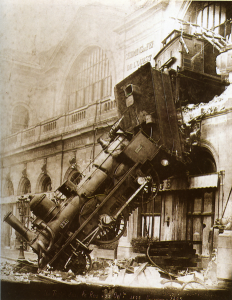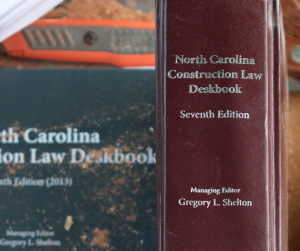When Principles Collide: North Carolina Supreme Courts Holds that Twenty-Year Written Warranty Survives the Six-Year Statute of Repose
(704) 940-9012
When irreconcilable legal principles collide, the highest court in the land will have the last word. In Christie v. Hartley Construction, Inc., the Supreme Court of North Carolina had to decide what happens when North Carolina’s six (6) year statutory time limit on claims–or statute of repose–collides with the freedom of parties to make contractual promises as they see fit.
I. Background
In the Christie case, homeowners sued the manufacturer of an exterior stucco-like material under the manufacturer’s express (written) twenty-year warranty. The manufacturer acknowledged its written twenty-year warranty, but asked the court to dismiss the warranty claim because the homeowners did not file the lawsuit within the six-year statute of repose applicable to construction cases. The homeowners, in turn, argued that the manufacturer relinquished any claim to the statute of repose defense when it promised to warrant the product for twenty years.
This seemingly run-of-the-mill construction case actually makes the “top five” most important construction cases in 2014 because of the legal principles at stake. The supreme court summarized the dispute as “a conflict between the public policy embodied in the repose period set out in N.C.G.S. § 1-50(a)(5) and the right of parties to contract freely.”
II. The Competing Principles
In the red corner, we have the “statute of repose,” which functions as an “unyielding and absolute barrier” to untimely legal claims. The six year statute of repose starts to run at project completion, even if the plaintiff is unaware of the defects. If a lawsuit is not filed within six years from completion, the plaintiff simply has no claim against a builder or developer. Statutes of repose serve the policy function of putting time limits on potential claims so that industry participants can evaluate potential liability exposure in a meaningful way.
In the blue corner, we have the legal principle of “freedom to contract.” This principle provides that courts will not act paternalistically when interpreting a contract that two parties have entered. For example, courts will not judicially rewrite (“blue pencil”) contracts to make the terms more understandable or fair. Instead, courts favor the policy of allowing the parties to contract freely as they deem appropriate.
Two legal principles in direct opposition . . .
The unstoppable force colliding with the immovable object . . .
And there could only be one winner.
III. And the winner is . . .
In a unanimous decision, the supreme court declared “freedom to contract” as the winner:
“[W]e conclude that the six-year statute of repose set out in the statute provides valuable protection to those who make improvements to real property, but that the beneficiaries of the statute of repose may choose to forego that protection without violating any rule of public policy.”
In layman’s terms, a manufacturer that chooses to stand behind its product for twenty years should be allowed to do so. The supreme court looked at the problem from the customer’s point of view as well: “A warranty that a seller knows is unenforceable is a sham,” observed the court, “useful only to beguile the unsuspecting.”
IV. Conclusion
The Christie case makes the “top five” list of most important construction law cases because the statute of repose has been heavily litigated over the past few years as damage from defective work in the building boom has started to surface.
The case is equally important to the builders and manufacturers out there. The lesson: Don’t make promises you don’t intend to keep.


